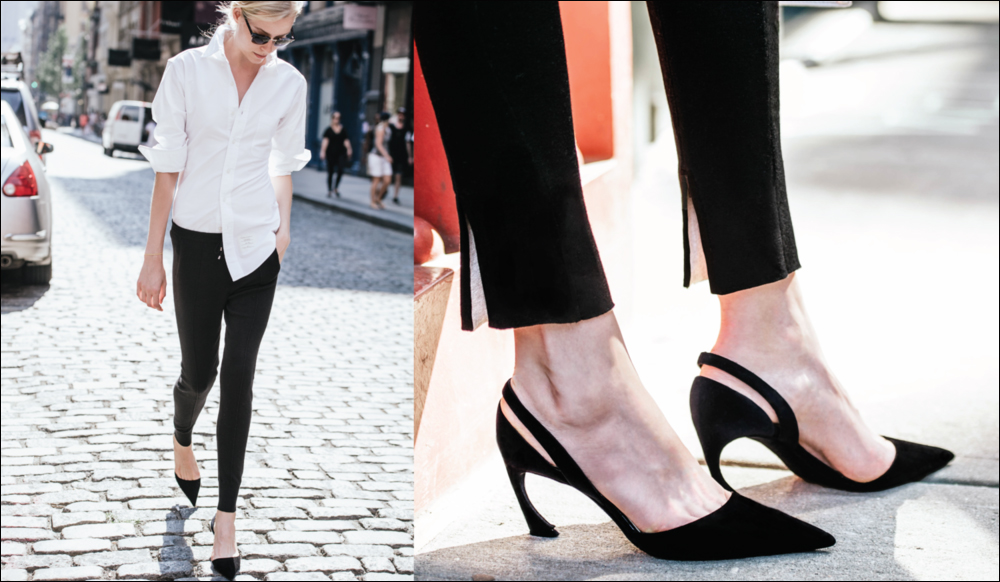

Fashion Tech is abuzz with consumer-facing innovations like wearable-tech and 3D-printed custom clothes but if you’re as concerned about the bottom line as much as the hem line, the opportunity for disruption lies on the other side of the runway — in manufacturing and production.
That’s how PLY founder Carolyn Yimʼ11CC, sees it anyway. “The problem is waste. Why does so much clothing end up being marked down, and then later tossed in a landfill?” asked Carolyn.
PLY is a vertically-integrated knitwear company in New York City that helps brands manufacture clothes using a smarter, data-driven approach. PLY, as a smart supplier, works closely with brands to make smaller production runs, with a short 2-3 month turnaround time. That’s down from a traditional 18 months. As soon as the products start selling, PLY and the brand quickly and frequently review wide-ranging data on sales, sell-through rate, fit comments, social media buzz, and weather changes to adapt the next production run.
Why the traditionally long 18-month production cycle? One reason is that brands start production one and a half years before clothing hits your local store. By the time the clothes are ready to sell, customers have moved on to new trend, leading to heavy markdowns. Retailers also operate on a dated fashion calendar. Collectively the industry “trains” the customers to stock up on winter clothes in summer and vice versa in the winter. “This is immensely wasteful,” says Carolyn. “Ineffective production not only distributes limited resources inefficiently but also hurts companies’ bottom lines.”
PLY, as a smart supplier, works closely with brands to make a smaller production runs, with a short 2-3 month turnaround time. As soon as the products start selling, PLY and the brand frequently review wide-ranging data on sales, sell-through rate, fit comments, social media buzz, and weather changes, to adapt the next production run. This allows brands to manufacture only three months ahead and hold smaller units of stock, drastically reducing the risk of unsold inventory at the end of season. In addition, PLY is exploring new ‘3D-knitting’ machines that move from concept to garment in 25 minutes.
Family
Carolyn has close links to fashion. Her father leads a global knitwear manufacturer. Her grandmother was the seamstress for Christian Dior’s atelier. Her grandfather was the first shoemaker to bring English-style shoes to Hong Kong. “I was never formally trained in fashion school, but I do have a sense of orientation, where all the lines go back to what I inherited. I’m curious and intuitive about materiality.” She said. While an undergraduate at Columbia College, Carolyn was a classroom assistant for retail classes at Columbia Business School. During and after school, she strategically worked in all segments of the supply chain to learn about the fashion industry from the ground up, from sourcing, manufacturing, wholesale, traditional retail, and ecommerce.

Plyknits!
Carolyn takes reducing apparel waste a step further via PLY’s own label, Plyknits!, a contemporary womenswear brand of trendless essentials. “In order to enter the highly-competitive market, I had to create something unique,” says Carolyn. “I looked at the way women live today — we seek something functional and unfussy, but we don’t like to sacrifice quality.” She started with the simple women’s black pants.
“Women’s black pants are so simple, but it is also hardest to do well,” Carolyn said. “Not only are there are so many points of size variance among women’s bodies, but also getting the right fabric is tough. Black pants are always either too flimsy or too stiff.” Unhappy with the material choices available, Carolyn experimented and finally created a high-quality, knitted stretch merino fabric — after only sixty-eight iterations.

“It is easy for pants to seem shapeless, so it was important to create the densest black pant in the market. It has a body to it, but also great comfort. Like a hybrid between a work pant and a weekend legging.” Happy with the results, Carolyn is filing a patent for the fabric ‘Technomerino’. She then sources recycled or top deadstock yarns for production, which diverts high-quality yarn from the landfill. Lastly, the company uses the fully-fashioned method to “3D-knit” the pant legs, rather than cutting flat panels, to create two smooth, cylindrical shapes that eliminate bunching.
Plyknits takes advantage of its vertical integration, which Carolyn finds crucial for quality control. The company works continuously on inventive developments, Carolyn says, noting, “We use bonded-technology to fuse the seams, add organic self-cleaning fibers, and test water-resistant fabrication — all to create the best black pants.” The best part? “Compared to traditional black pants, our production method has 28% less material wastage.” Ever both design and business-minded, she says with a smile, “That means if you want to make the same number of pants as we do, you need to spend much more in your material costs.”

